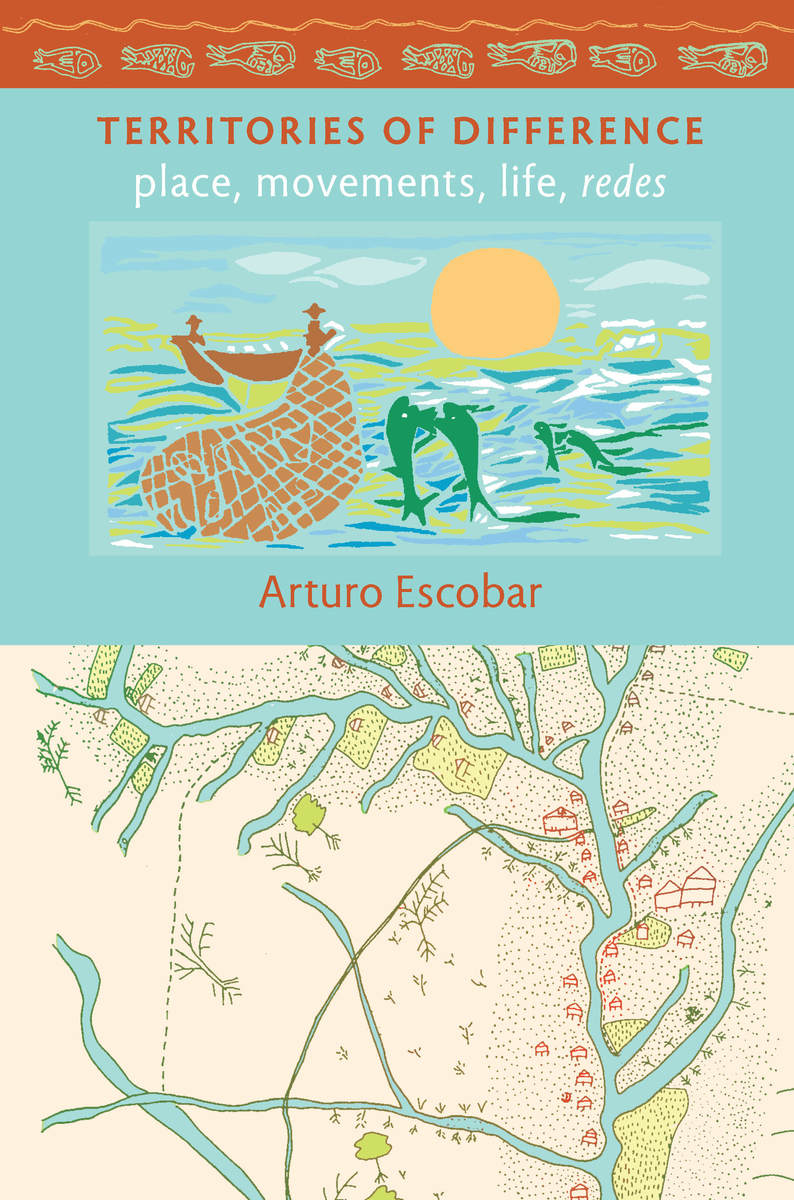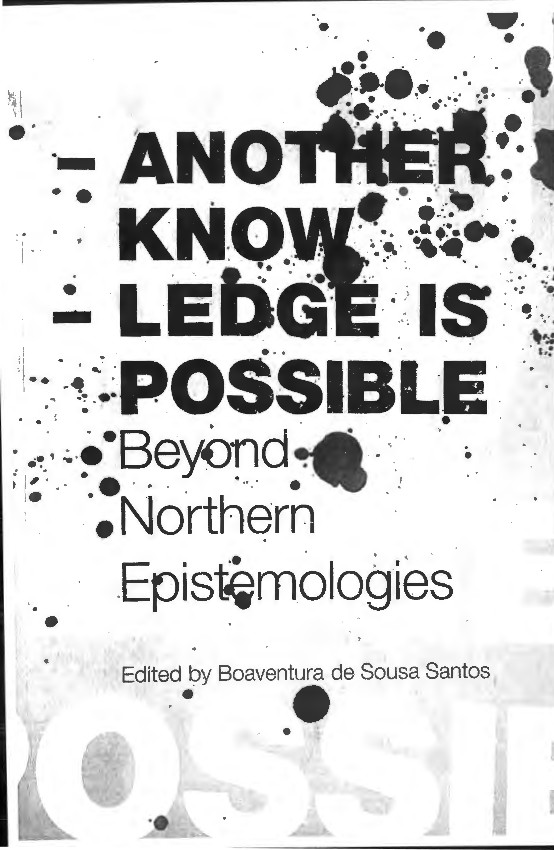Arturo Escobar: Territories of Difference: Place, Movements, Life, Redes (2008)
Filed under book | Tags: · anthropology, assemblage, biodiversity, black people, complexity theory, decoloniality, epistemology, ethnography, governance, indigenous peoples, modernity, nature, politics, self-organization, social movements, state, territory

“In Territories of Difference, Arturo Escobar, author of the widely debated book Encountering Development, analyzes the politics of difference enacted by specific place-based ethnic and environmental movements in the context of neoliberal globalization. His analysis is based on his many years of engagement with a group of Afro-Colombian activists of Colombia’s Pacific rainforest region, the Proceso de Comunidades Negras (PCN). Escobar offers a detailed ethnographic account of PCN’s visions, strategies, and practices, and he chronicles and analyzes the movement’s struggles for autonomy, territory, justice, and cultural recognition. Yet he also does much more. Consistently emphasizing the value of local activist knowledge for both understanding and social action and drawing on multiple strands of critical scholarship, Escobar proposes new ways for scholars and activists to examine and apprehend the momentous, complex processes engulfing regions such as the Colombian Pacific today.
Escobar illuminates many interrelated dynamics, including the Colombian government’s policies of development and pluralism that created conditions for the emergence of black and indigenous social movements and those movements’ efforts to steer the region in particular directions. He examines attempts by capitalists to appropriate the rainforest and extract resources, by developers to set the region on the path of modernist progress, and by biologists and others to defend this incredibly rich biodiversity “hot-spot” from the most predatory activities of capitalists and developers. He also looks at the attempts of academics, activists, and intellectuals to understand all of these complicated processes. Territories of Difference is Escobar’s effort to think with Afro-Colombian intellectual-activists who aim to move beyond the limits of Eurocentric paradigms as they confront the ravages of neoliberal globalization and seek to defend their place-based cultures and territories.”
Publisher Duke University Press, 2008
New Ecologies for the Twenty-first Century series, 1
ISBN 9780822343271, 0822343274
xvi+435 pages
Reviews: Laura Fano Morrissey (Development, 2009), Christopher L. Chiappari (Latin American Politics & Society, 2010), Pierre Hamel (American Journal of Sociology, 2010), Lilly U. Nguyen (Interactions, 2010), Rodrigo A. Lima de Medeiros & Guilherme F. W. Radomsky (Sociedade e Estado, 2010, BR-PT), Manuel J. Prieto (Revista de geografía Norte Grande, 2010, ES), Jeffrey S. Juris (American Anthropologist, 2011), Cornelia Butler Flora (J Agric Environ Ethics, 2011), Claudia Steiner (Americas, 2011), Paul Routledge, Juanita Sundberg, Marcus Power, & Arturo Escobar (Progress in Human Geography, 2012).
PDF (5 MB)
Comment (0)Boaventura de Sousa Santos (ed.): Another Knowledge Is Possible: Beyond Northern Epistemologies (2007)
Filed under book | Tags: · biodiversity, capitalism, environment, epistemology, human rights, knowledge, medicine, neoliberalism, social movements

“The main argument of this book is that there is no global social justice without global cognitive justice. Probably more than ever, global capitalism appears as a civilizational paradigm encompassing all domains of social life. The exclusion, oppression, and discrimination it produces have not only economic, social, and political dimensions but also cultural and epistemological ones. Accordingly, to confront this paradigm in all its dimensions is the challenge facing a new critical theory and new emancipatory practices. Contrary to their predecessors, this theory and these practices must start from the premise that the epistemological diversity of the world is immense, as immense as its cultural diversity and that the recognition of such diversity must be at the core of the global resistance against capitalism and of the formulation of alternative forms of sociability.” (from the Introduction)
Another Knowledge Is Possible explores the struggles against moral and cultural imperialism and neoliberal globalization that have taken place over the past few decades, and the alternatives that have emerged in countries throughout the developing world from Brazil and Colombia, to India, South Africa and Mozambique. In particular it looks at the issue of biodiversity, the confrontation between scientific and non-scientific knowledges, and the increasing difficulty experienced by great numbers of people in accessing information and scientific-technological knowledge.
With contributions by Margarita Flórez Alonso, Luis Carlos Arenas, João Paulo Borges Coelho, Arturo Escobar, Yash Ghai, Maria Paula Meneses, João Arriscado Nunes, Lino João de Oliveira Neves, Mauricio Pardo, Shalini Randeria, Laymert Garcia dos Santos, Vandana Shiva, Carlos Frederico Marés de Souza Filho, Tewolde Berhan Gebre Egziabher, Shiv Visvanathan, and Thokozani Xaba.
Publisher Verso, London, 2007
ISBN 9781844672561
447 pages
via the editor, HT kris
PDF (single PDF, updated to an OCR’d version on 2014-5-9 via esco_bar)
PDF (PDF chapters)

